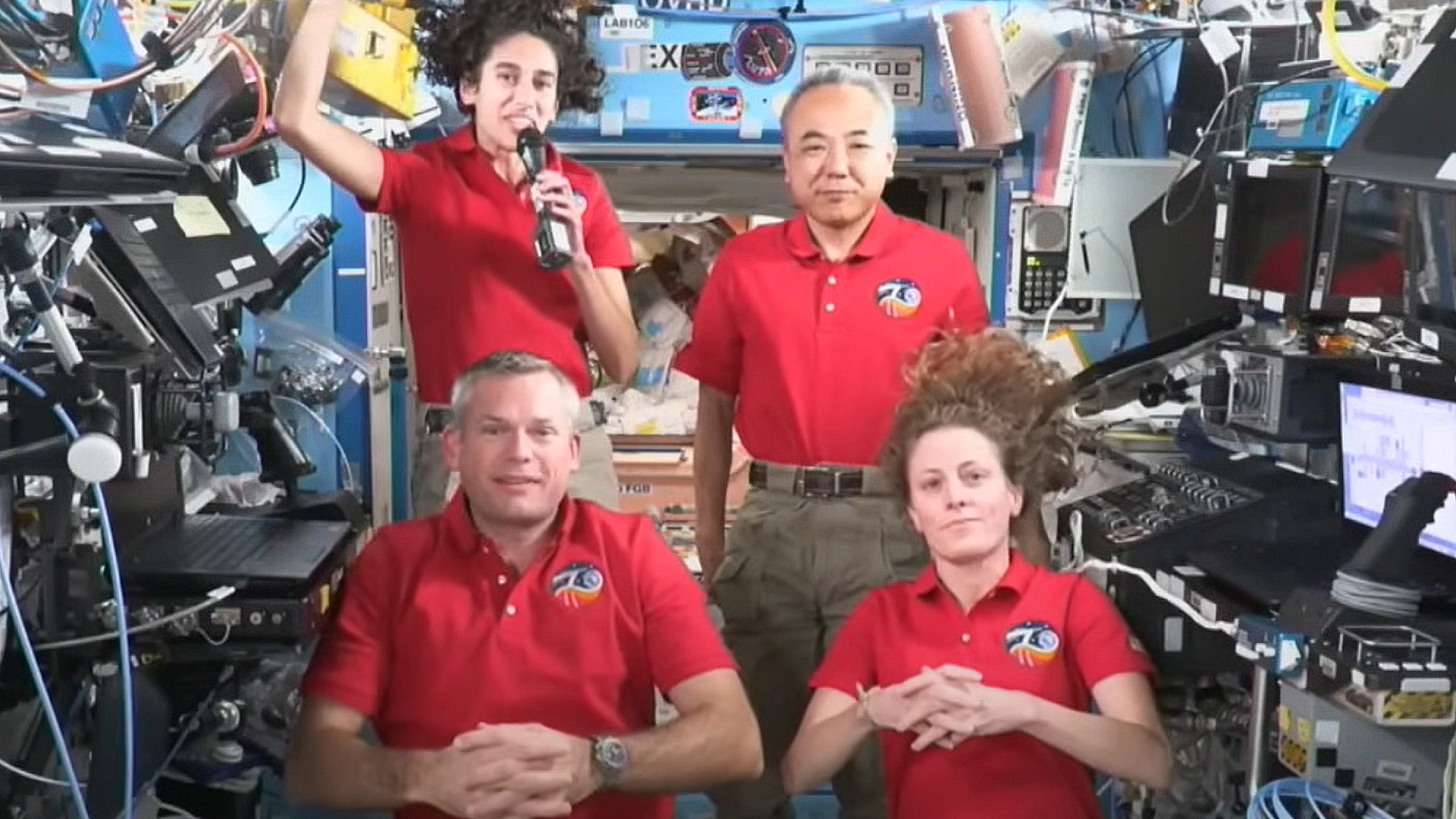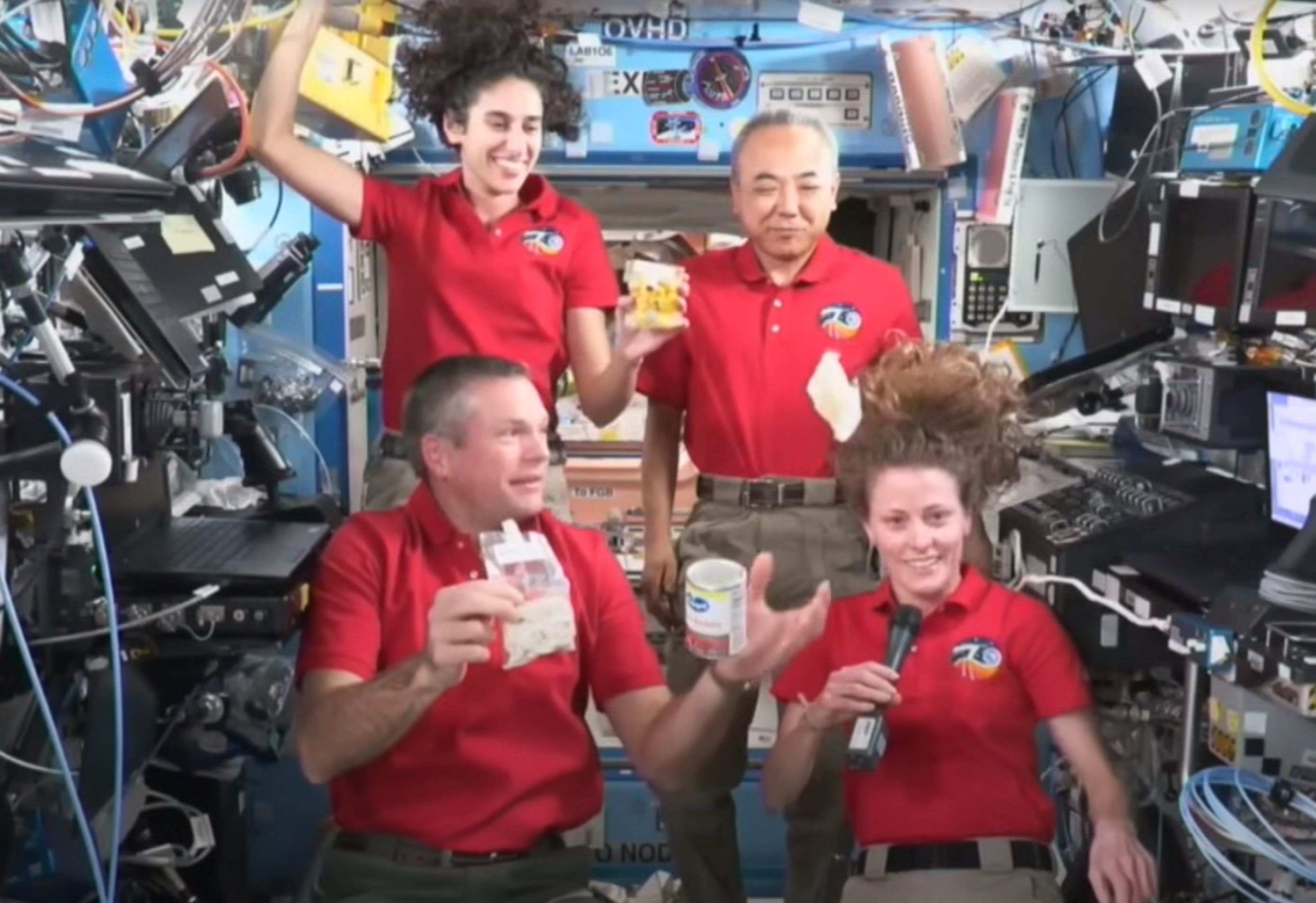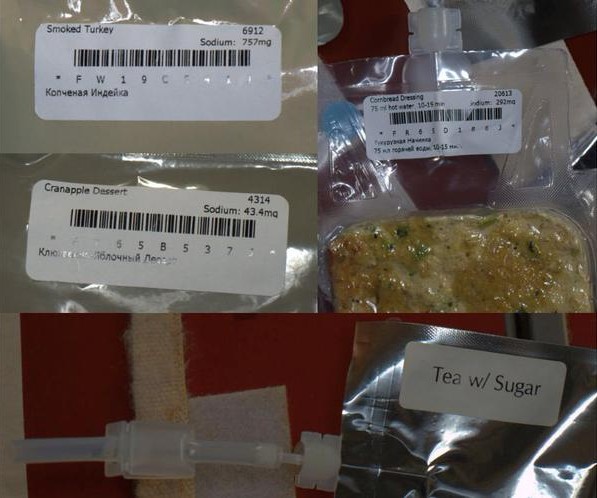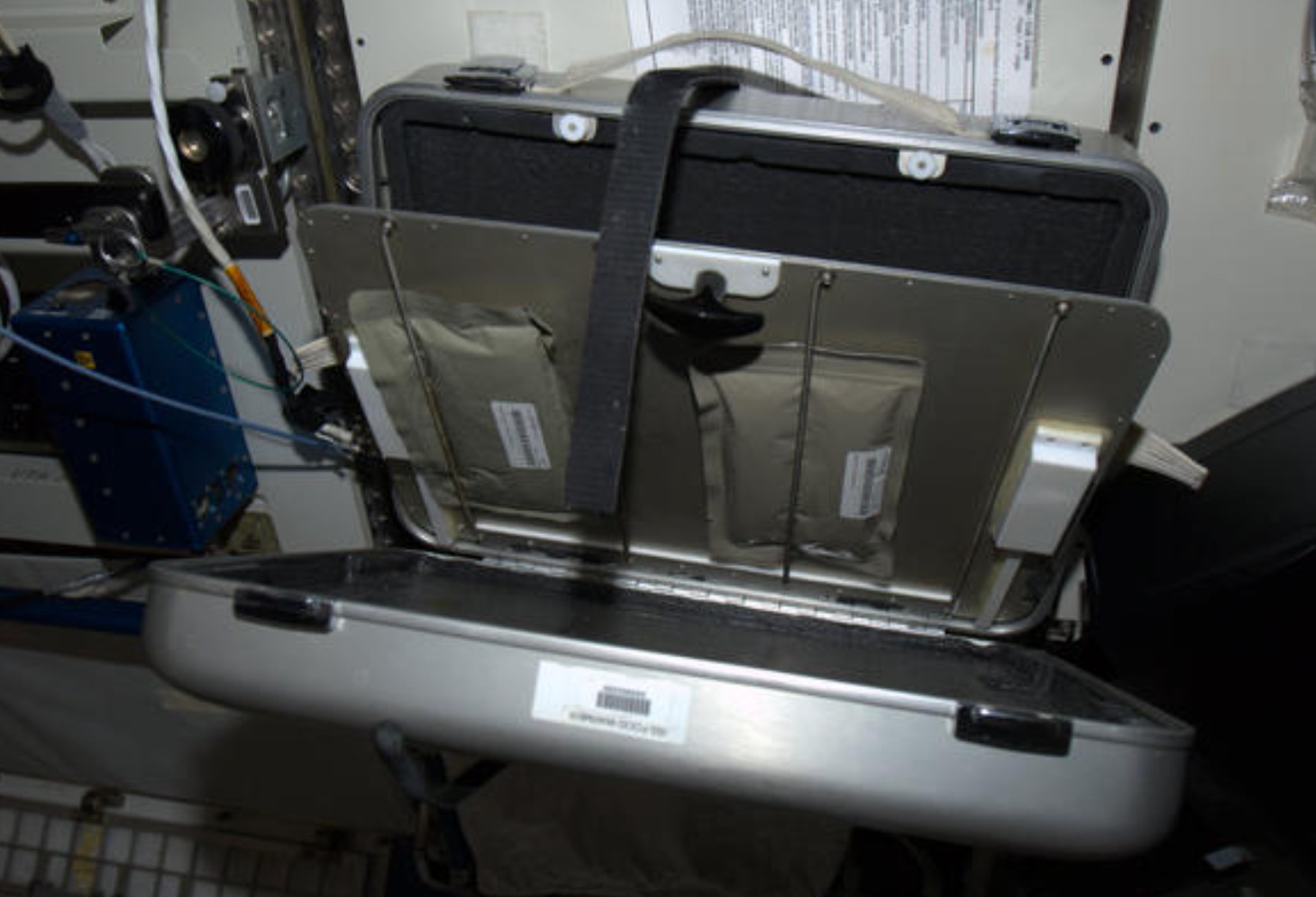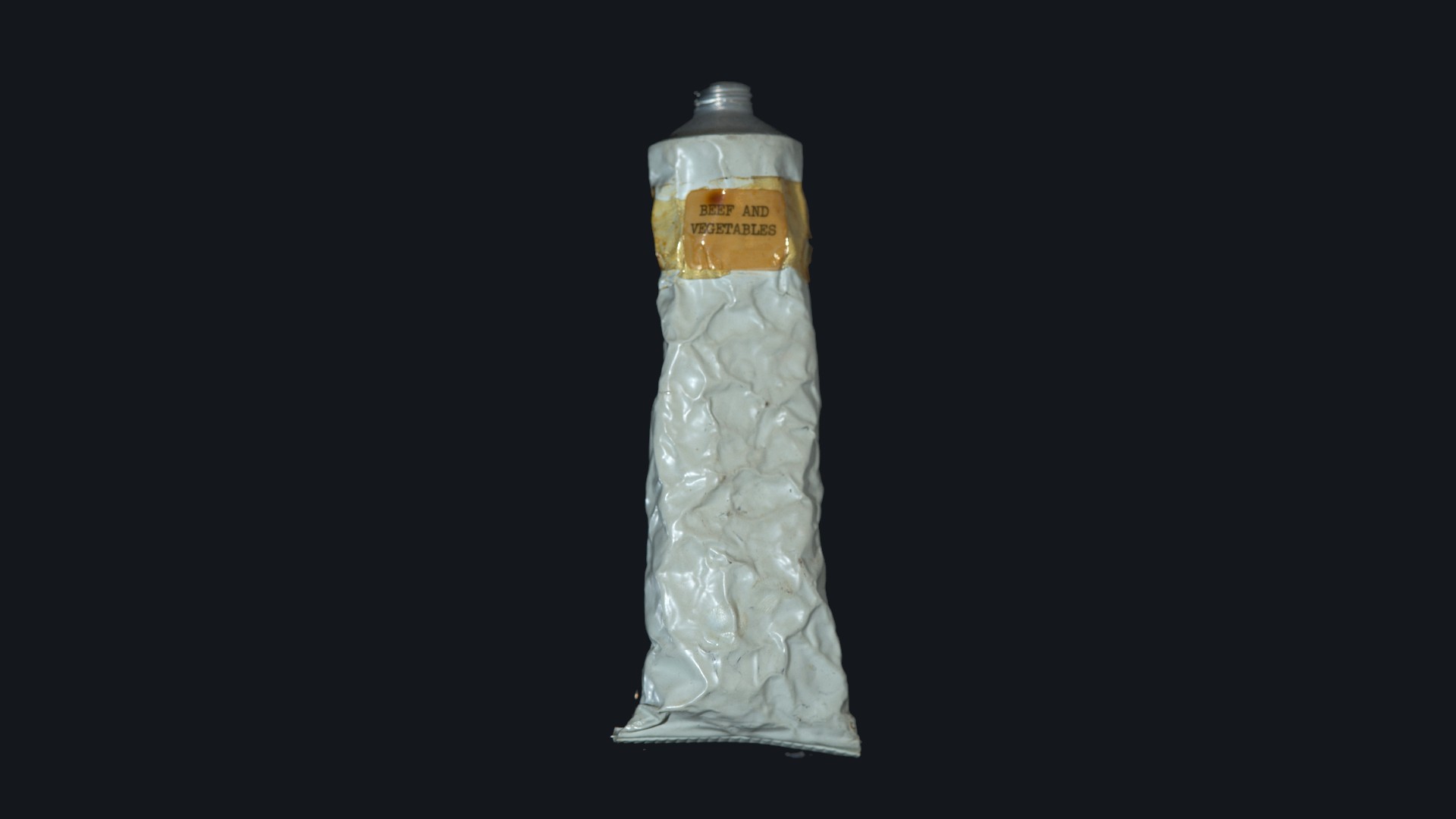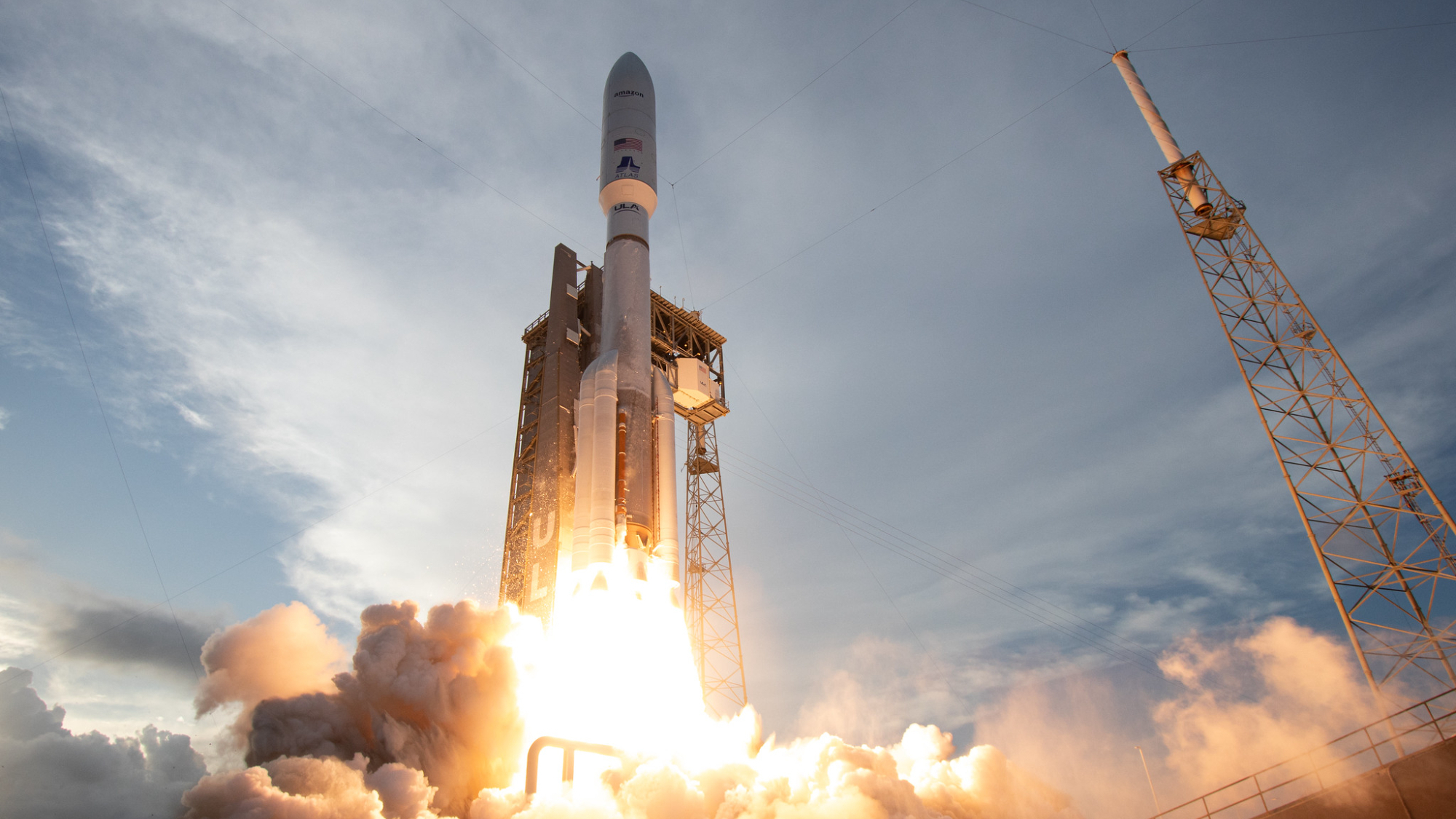Astronauts celebrate Thanksgiving in space! Here's what they'll eat and what they're thankful for (video)
The crew of Expedition 70 will be celebrating Turkey Day in style with an out-of-this-world meal 200 miles over Earth on the International Space Station.
The seven astronauts of Expedition 70 are celebrating Thanksgiving in space.
The astronauts from three different countries aboard the International Space Station (ISS) will take Thursday, Nov. 23, off, allowing them to relax and enjoy a Thanksgiving feast of turkey, duck, quail, seafood, corn and cranberry sauce. The Expedition 70 crew shared a video message ahead of Thanksgiving, sending well wishes to everyone 200 to 250 miles (370 to 460 kilometers) below the Earth.
"We will be celebrating Thanksgiving together in space, but our thoughts are with our families at home and everyone else on Earth celebrating Thanksgiving," Commander Andreas Mogensen said in a video shared by NASA. "We'd like to take this opportunity to share this message on Thanksgiving from space with you."
Flight engineer Jasmin Moghbeli continued: "This year onboard the International Space Station, we're thankful for many things, one of which is our unique vantage point looking back at our beautiful home planet Earth.
"We get to see it in a very unique way and see how special and beautiful it is. It's a reminder to us that, while everyone we know and love is back home on Earth, we need to protect it and take care of it," Moghbeli added.
Related: Track the ISS: How and where to see it
Mogensen, Moghbeli, flight engineers Satoshi Furukawa, Loral O'Hara, and Konstantin Borisov, Oleg Kononenko and Nikolai Chub of Russian space agency Roscosmos will also enjoy some sweeter Thanksgiving treats. These will range from chocolate, pumpkin spice cappuccino, rice cake, cran-apple dessert, and mochi.
Breaking space news, the latest updates on rocket launches, skywatching events and more!
"We would also like to recognize that not everyone celebrates Thanksgiving in the same way. While this is a time for gratitude, it's also an opportunity to reflect on our history and remember those who might not get to go home for Thanksgiving or enjoy Thanksgiving dinner," O'Hara added. "We hope everyone gets to enjoy moments filled with peace and spend time with their friends and family."
"Happy Thanksgiving to you all," Furukawa said, concluding the holiday message from the Expedition 70 crew, who will spend next Thanksgiving at home after returning to Earth in spring 2024.
A Thanksgiving care package
The cornucopia of holiday food was shipped to the ISS by the SpaceX CRS-29 Dragon resupply service mission, which blasted off from Kennedy Space Center, Florida, on Thursday, Nov. 9, atop a Falcon 9 rocket. CRS-29 docked at the ISS on Sat, Nov. 11.
Skipping the prep (and the dishes)
In 2014, Expedition 42 commander and NASA astronaut Chris Hadfield Barry "Butch" Wilmore shared images of what the Thanksgiving fare on the ISS looks like before it is prepared.
Like other food sent to the ISS, the festive treats for Thanksgiving are shipped in foil or plastic packaging and are refrigerated or dehydrated. The ISS crew prepares these meals by adding water and heating in a suitcase-sized food warmer — skipping the hours of intensive preparation underway in households across the U.S. currently.
It might not be much, but it beats the tubes of paste that Yuri Gagarin ate during his trip to space in 1961.
The seating arrangements on the ISS for Thanksgiving dinner will be radically different, too. Magnets and Velcro will hold down the crew's cans and utensils as the astronauts eat in microgravity. Not only will the central galley table lack a centerpiece Horn of Plenty, but the ISS team also won't even have chairs to sit on!
The ISS crew will also skip washing up as astronauts on the space station because after eating, astronauts on the ISS have to dispose of utensils and food packages to avoid the rapid growth of bacteria.

Robert Lea is a science journalist in the U.K. whose articles have been published in Physics World, New Scientist, Astronomy Magazine, All About Space, Newsweek and ZME Science. He also writes about science communication for Elsevier and the European Journal of Physics. Rob holds a bachelor of science degree in physics and astronomy from the U.K.’s Open University. Follow him on Twitter @sciencef1rst.
